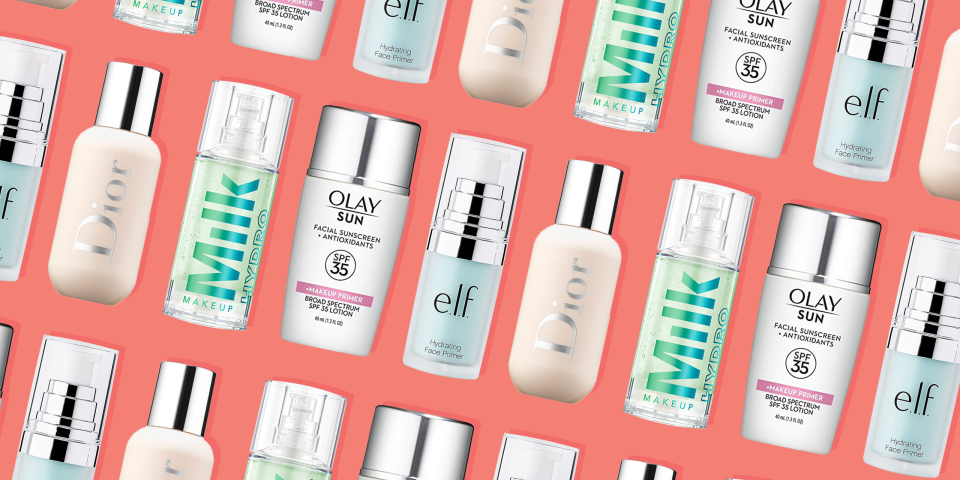13 Hydrating Face Primers That Will Make Foundation Look Flawless on Dry Skin














15 Hydrating Face Primers That Will Make Foundation Look Flawless on Dry Skin
If your skin skews on the dry side, you already know that applying foundation can be a major struggle (hello, flaky patches). “Foundation does not go on well when your skin is dehydrated, dry, and rough,” says Jeanine Downie M.D., board-certified dermatologist and host of The Gist on YouTube. Slathering on a rich moisturizer can help prep your face for makeup—but if your skincare isn’t cutting it, a hydrating primer can help smooth things over.
Not to be confused with a mattifying or pore-filling, putty-like base, primers geared toward dry skin often have a creamy or milky texture and contain ingredients similar to those found in moisturizers, which “can add beneficial hydration, plumping the skin and minimizing the look of fine lines and wrinkles,” explains editorial makeup artist Nicole Walmsley.
Some primers have SPF and environmental blockers for an extra layer of protection, she adds, while others contain pearlescent pigments that leave you visibly glowing and moisturized. “It’s like adding a bit of a soft focus or light filter” to the makeup process, per celebrity makeup artist Nicki Ledermann, and it provides a more forgiving canvas for foundation application. That said, choosing the perfect primer is like finding a needle in a haystack, especially because no two are the same.
How to choose the best primers for dry skin
Consider your foundation: Not every primer will agree with the foundation you layer on top of it. “I see this a lot,” says Robert Sesnek, a celebrity makeup artist for Catrice Cosmetics. “If they don’t mesh together you can end up with a very heavy, artificial, cakey-looking foundation application.” Mitigating this issue comes with a lot of trial and error, but you can also look for a primer that shares main ingredients with your favorite foundation. So if your foundation is water-based, look for a water-based primer, if it’s oil-based, try a primer oil.
Scan the ingredients: Much like your moisturizer, the ideal primer for dry skin should offer ingredients that plump, hydrate smooth, or brighten. Hyaluronic acid, glycerin, shea butter, aloe vera, vitamin E, and lightweight oils are good indicators that you’re on the right path.
Find your ideal texture: Hydrating primers can feel like a cream, gel, or mousse. Get a sample when you can to find a texture ideal for your problem areas. Those with more combo skin may prefer a lighter gel, while people with an extra-dry complexion might want to go the cream route.
Now that you know what to look for, you can get to the fun part! Below, we rounded up expert-approved and cult favorite primers that create a hydrated, dewy base for makeup.
Get that naturally dewy look with one simple step.